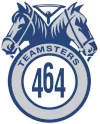How to Form a Union
Will my employer know I signed a membership card?
No. Membership cards are confidential and the cards are passed by the Union to the labour board without the Employer ever seeing them. The B.C. Labour Relations Code (governing employees in the Province) and the Canada Labour Code (governing federally regulated employees) contain express provisions denying the Employer access to the membership cards or any other identifying information as to who did or did not express interest in the Union.
Why are the membership cards so secret?
Employers, no matter who they are, do not want a Union in the workplace. Unions redistribute wealth and employers prefer to keep as much of the profit for themselves or their shareholders. Some employers will find ways of penalizing individuals who attempt to organize a Union. Our legislators past and present recognize this history and have created laws that make the process of unionization confidential. Employers will find out whether the Union had enough membership cards to process the application for certification. However, an employer has no legal right to know which specific individuals did or did not sign a membership card. Any employer attempt to identify pro-Union or anti-Union supporters is an unfair labour practice.
What's automatic certification?
It's a process whereby a Union can be certified as the bargaining agent based on signed membership cards. An additional vote is not required. In 2002, Gordon Campbell's Liberal government revoked the automatic certification process which had been in place in British Columbia for a decade. Most provinces allow automatic certification or a card based system for granting bargaining rights to a Union. Currently in the Province of British Columbia, a Union applying for certification must file membership cards from at least 45% of the proposed bargaining unit after which a vote will be scheduled within 10-days. In the federal sphere under the Canada Labour Code a Union can be automatically certified where more than 50% of employees sign membership cards. What's an unfair labour practice? It's a kind of law suit filed by the Union against the Employer alleging the Employer interfered in employees' right to choose whether to organize a Union or not. The law states that employees have the right to choose whether to unionize without employer interference of any kind. That means interference by way of direct or indirect intimidation or by way of offering a benefit as a means of persuasion. Both are prohibited conduct under provincial and federal labour laws.
Does everyone have to sign up for the Union?
No. The majority rules. For employees in the Province of British Columbia if a majority vote in favour of the Union then the workplace becomes unionized. In that case, the B.C. Labour Relations Board will issue a certification and all employees--whether they signed a membership card or not--will become Union members. For federally regulated employees such as flight attendants or truck drivers who cross provincial boundaries on a regular basis, the Canada Industrial Relations Board requires a minimum of 50.1% of employees to sign cards before granting "automatic certification".
Will I get a vote on whether my workplace is Unionized?
If there is a vote you will be entitled to cast a ballot if you fall into the group of employees affected by the outcome. Sometimes the labour board decides not to hold a vote. Those exceptions are: (a) in the Province of British Columbia a Union's application for certification will be dismissed if it is filed with less than 45% of membership cards from employees. (If more than 45% sign cards the Board will hold a vote in all cases). (b) For federally regulated employees falling under the Canada Labour Code a Union's application will be dismissed if it is filed with less than 35% of signed membership cards. (c) Finally for federally regulated employees falling under the Canada Labour Code a Union's application for certification will be granted without a vote where more than 50% of employees sign membership cards. Again this is automatic certification. (Conversely a vote is only held where 35% - 50% of employees signed membership cards).
Where can I find more information on forming a Union?
Of course you can contact one of our Business-Representatives, Mike Christensen or Bret O'Neill but for more general information, if you regularly work in the Province of British Columbia then your labour relations are governed by the Province. The B.C. Labour Relations Board maintains an excellent website with its own lay persons' Q & A on unionization. If you work in telecommunications or cross-border transportation, then your labour relations are likely governed by the Canada Industrial Relations Board. That Board also maintains a website with information on the process of Unionization: to view click here.
